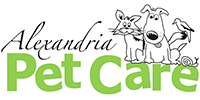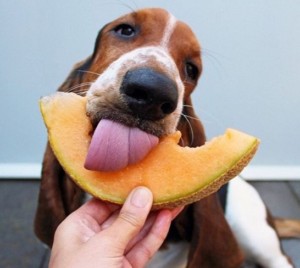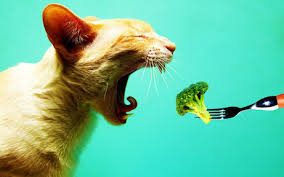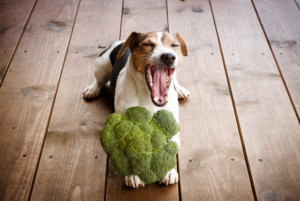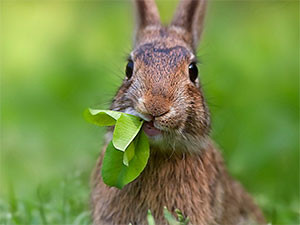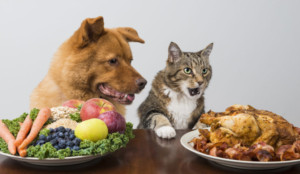Did you know that March is National Nutrition Month?
I’m pretty sure that this month’s theme was originally created with humans in mind, but I say let’s extend the knowledge to our pets! Stay tuned this month for tips to keep your pet nutritionally healthy and happy. There are a lot of mixed messages out there regarding what human foods are actually healthy for pets. Often, when we buy packaged treats, there are additives and preservatives that really don’t keep our pets healthy, and sometimes simply switching to fresh fruits and veggies is a better option. However, it is important to do some research on the pros and cons of people food, before making a switch, and before letting your pet eat your scraps (which, kudos to you if you have the willpower to avoid puppy eyes).
I was surprised when I learned that certain fresh fruits and veggies are super healthy and beneficial for dogs and cats to eat! Remember that dogs are omnivorous, and thus tend to be more excited about a fruit or veggie snack. Cats, on the other hand, are carnivorous and lack the ability to taste sweet things so they will be more excited to snack on something meaty.
If you’re interested in trying the au-natural snacking method for your pets, here are a few things to put on your shopping list:
- Apple Slices (make sure to take out the seeds, as they contain small concentrations of arsenic)
- Cantaloupe
- Bananas
- Green beans
- Carrots
- Sweet potato (cubed, cooked, or mashed – raw and natural, without any butter or seasoning)
- Zucchini
- Unsalted/Unbuttered Popcorn
- Catnip/Cat grass
- Small pieces of cooked, lean meat (no skin, fat, bones, or seasoning)
- Bonito flakes
Be sure to stay away from the following, as they are harmful to pets:
- Grapes and raisins
- Garlic and onions
- Avocado pits and skin
- Wild mushrooms
- Fruits with pits (peaches, cherries, plums, etc)
- Nuts
Again, these snacks are just that: Snacks! Treats should only make up about 10 percent of your pet’s diet. As you introduce new foods into your pet’s daily routine, be sure to monitor their digestive systems and general behavior. If you notice any symptoms such as lethargy, inappetence, diarrhea, blood (coming from anywhere), or any other negative changes, stop feeding the new food, and consult your vet!
Chances are, you made a New Years Resolution to get yourself healthy – let’s do the same for our pets!
